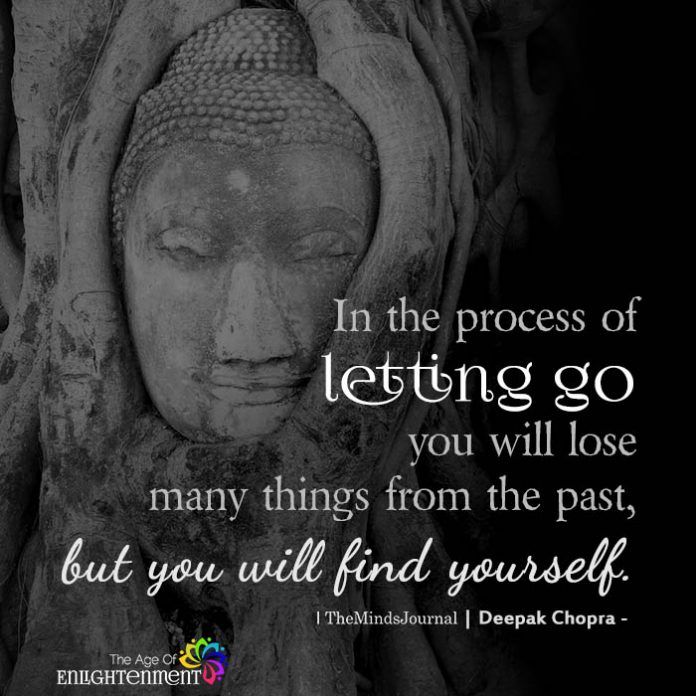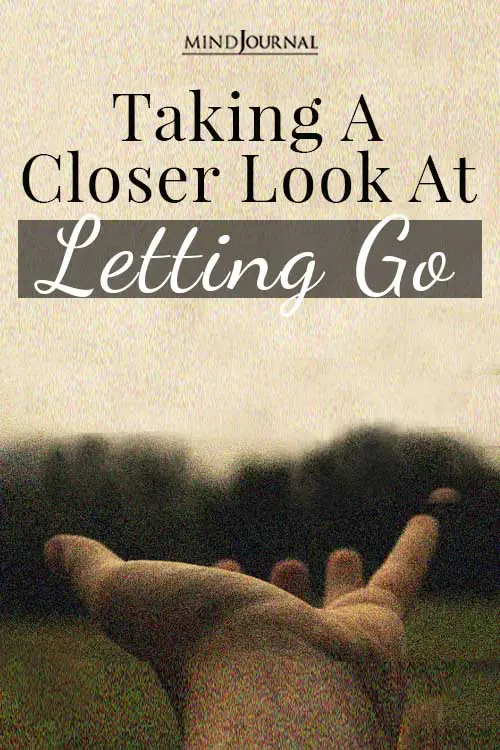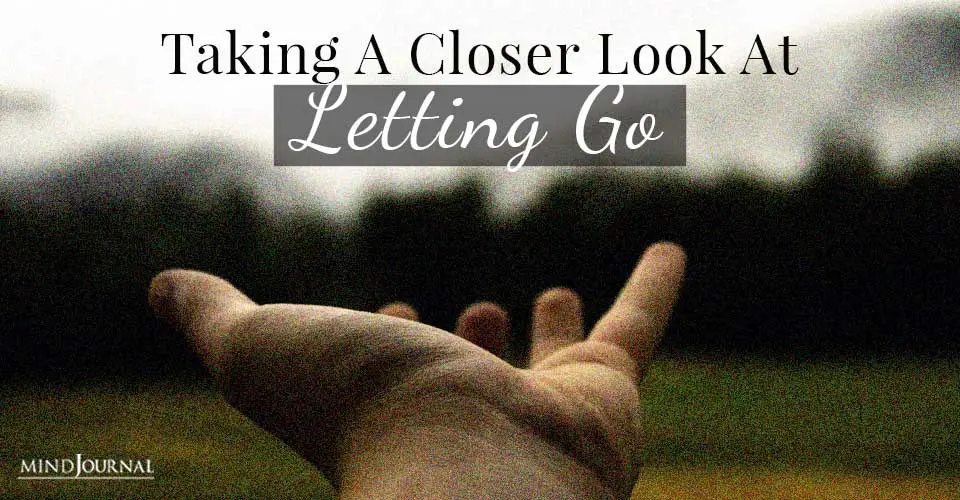How do you look at letting go? On a recent walk, I was reflecting on the concept of letting go – of getting out of our own way and allowing the grace and intelligence of Life to move us forward. Don’t you love the sound of that? So supportive and nourishing and ease-filled…and yet, for many people, it’s confusing and seemingly difficult to do.
One of the first questions clients ask, once they’ve acknowledged a need and desire to experience the relief of letting go, is what they’re actually letting go of. Usually, they’ve been trying so hard for so long to make something happen, they think what they need to let go of is the desire itself.
And while it’s true that our desires shift and change over time, and that it’s always beneficial to pause, go within and ask our heart of hearts what we want now (as opposed to what we may have wanted in the past), what usually needs to be released is the struggle and frustration, not the desire.

What most people desire are experienced such as greater fulfilment at work, satisfying creative self-expression, financial plenty, vibrant health and loving relationships. These are natural, life-giving desires that generate a sense of aliveness and fulfilment as they are realized. They call us toward our most meaningful, peaceful and joyful lives. They are meant to be honoured, not tossed into the trash bin of “not going to happen.”
But because so many of us don’t fully grasp the ramifications of being a vibrational being in a vibrational universe, we don’t understand that pushing and forcing and struggling to make something happen to generate feelings such as frustration, resentment and overwhelm – all of which is vibrational static that interferes with the natural evolution of our desires from ideas to experiences.
Related: Why Letting Go Is Not Always A Bad Thing
At a certain level, though, most people intuitively recognize when they’re trying too hard, even if they don’t understand energy dynamics. In that recognition – and in their exhaustion – they understand that they need to relax and get out of their own way. And so they figure out what they can delegate, eliminate or do less of, and maybe they even schedule a vacation or retreat to get away from it all and focus on relaxation, all of which are excellent, self-loving things to do.
But the thing is, changing action without changing mindset doesn’t actually change anything long-term. It’s like moving pieces around on a game board. You change the specifics of how you get to the endpoint, but you’re still playing the same game.
It’s time for a different game, one that reflects the vibrational nature of your being. In this game, there is no endpoint, just ever-expanding cycles of growth, joy and fulfilment.
Consciousness
As a vibrational being, the tone or quality of your consciousness determines the tone or quality of your life, and it sets the stage for the specific opportunities, circumstances and relationships you experience. It determines the kinds of ideas you have, the types of people who show up in your life, the level of income you can currently realize, the nature of opportunities that present themselves to you and so much more because one of the properties of energy is that like attracts like.
As you vibrate, so you create.
As I’m using the term, “consciousness” is the constellation of your ideas, assumptions, beliefs, opinions, interpretations, conclusions, thoughts, worldview, feelings, doubts, fears, etc., all of which have an energetic reality to them. It is the composite of the intangible yet very real aspects of you that define and express who you are.
Your consciousness is the energetic matrix or blueprint for your life, and the really good news is that it can be changed if you don’t like something about your life right now.
You can change the blueprint by cultivating new perspectives and abandoning the ones that no longer serve you – which brings us back to letting go.
Many of us have been taught we have to work really hard to succeed at anything, and that belief alone is the root cause of a lot of frustration, resentment and overwhelm as we attempt to work harder and harder to achieve our goals, not realizing that the belief in struggle, and the associated uncomfortable feelings that arise as we struggle, are getting in the way of what we want. Our belief in struggle creates more of it. Talk about a perspective that no longer serves us!
Related: What Is Consciousness? The Scientific Pursuit of Consciousness
We don’t need to work more, we need to work less to let go.
Yet before that strategy can pay off for us, we need to let go of something other than specific tasks or activities.
- We need to let go of the thoughts that run counter to an ease-filled, satisfying experience.
- We need to let go of self-doubt. We need to let go of self-condemnation.
- We need to let go of blame, both of ourselves and others.
- We need to let go of the belief that we have to prove our worthiness in order to receive anything good in life, and
- We need to let go of the belief that struggle is the way to prove it.
I could go on and on about the kinds of thoughts we need to let go of, but I’m sure you get the idea. The point here is the understanding that letting go of tasks, activities or people, from within a consciousness of struggle or frustration, will provide only temporary relief. Unless we change the way we think, we’ll simply recreate the same kinds of circumstances that are currently frustrating us.
To experience the kind of ease we long for, we have to make a firm and loving commitment to shifting our consciousness. We have to change the way we think and imagine and believe, change what we assume to be true of ourselves and change what we believe is possible for us to experience. This requires focus and effort, but it doesn’t require struggle. As with anything else, the struggle only gets in the way.
The key is to take on these changes from an underlying intention to love ourselves through the process, and that means we start focusing on feeling as good as we can, moment to moment. We explore and experiment with perspectives that are supportive and encouraging, we learn how to soothe ourselves when we wobble and we look for ways to have fun along the way.
And as we continue to cultivate a loving, supportive, peaceful and optimistic consciousness, it becomes easier and easier to let go of thoughts of worry and struggle. Because we’re now focusing elsewhere, they no longer have the same strength they had before; our attention doesn’t get automatically pulled into them.
Ease of letting go
Letting go becomes something we naturally do when unhelpful thoughts arise, rather than a dramatic ritual of release or an impatient demand we place on ourselves to stop thinking those kinds of thoughts. And with each letting go of a struggle- or fear-based thought, we create a spaciousness of mind that invites inspiration and possibility into our lives. We flow in our own current of life-giving energy.
As our lives become more gracious, more delightful and more ease-filled, we understand more deeply than ever the powerful creative force of our own consciousness. We realize that choosing loving thoughts is neither naïve nor foolish nor fake.
It is the most responsible thing we can do to create the kind of world we want to live in.
I’d love to hear from you! Please add your insights and questions in the “Submit a Comment” space below. Thank you!
Written by: Suzanne Eder
Originally appeared on: Suzanne Eder
Republished with permission.
Reserve your free 25-minute consultation with Suzanne by emailing her at [email protected]. Please use the words “Free consultation” in the subject line.









Leave a Reply
You must be logged in to post a comment.